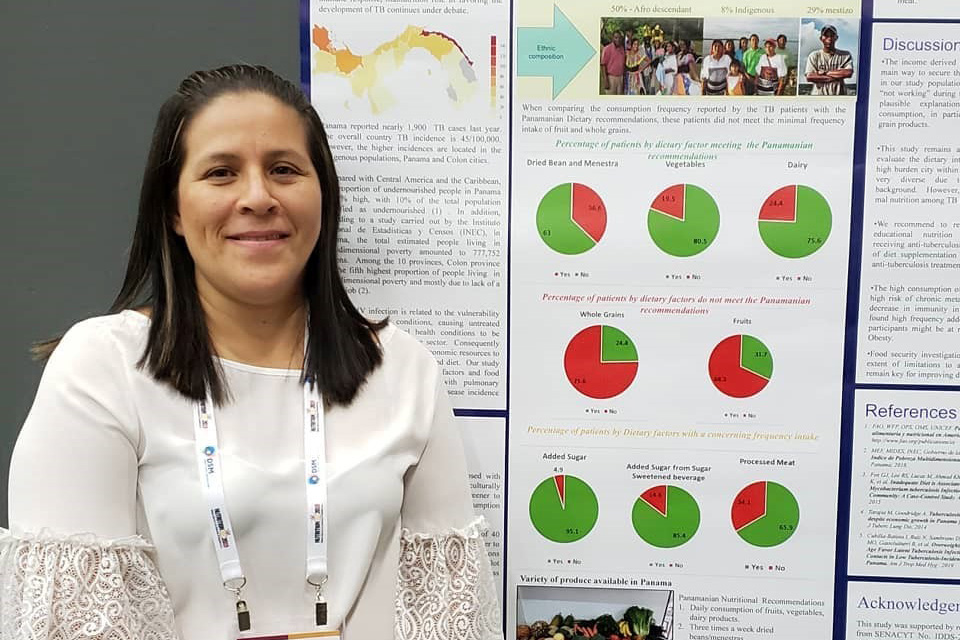Take Five: "Women tend to be more inclusive and seek consensus, and in science these two things are very much needed to foster research and the development of human talent"
Idalina Cubilla is a Medical Technologist, with a Master in Public Health and a PhD in Epidemiology. She works in a second level Hospital of the Social Security Fund in Aguadulce, Panama, where she is dedicated to guide resident physicians and staff in the research process. She has her own research on topics such as tuberculosis, nutrition and diabetes. }Date:

Photo: courtesy of Idalina Cubilla.
You have a history of work in science and research. What measures do you think should be a priority to advance towards gender equality in science at the national and regional level?
We must ensure that institutions that have women researchers and scientists in their teams are given adequate support. I am referring to giving them the time and resources they need thrive. In the health sector, many of the women in science are given assistance tasks and we do not have dedicated time for research.
What is your current work and how does it relate to the response to the COVID-19 crisis?
My current job is to support resident physicians and officials who are doing health research. Additionally, I participated as the main researcher in a study where we evaluated health and nutritional behaviors in Panamanian adults during the first months of the pandemic and as co-reserarcher in studies related to the use of convalescent plasma in patients with COVID-19. I am currently a co-researcher in another study that described the characteristics of critically ill patients during the first months of the pandemic.
In the context in which we are currently, what new challenges do you have and how do you face them?
The new challenges I’m facing have to do with adapting to time and distance restrictions. Since now everything tends to be done virtually, and this has been accepted as the new normal, I have had to work hard so that my certain roles in my personal life as a mother and woman are not overshadowed by work, given that we are frequently required to attend meetings and conferences at any given time. Jobs are not flexible to make accommodations.
Why do you think it is important to strengthen women's empowerment in science?
Women tend to be more inclusive and seek consensus, and in science these two things are very much needed to foster research and the development of human talent.
The stereotype is often perpetuated that girls are not smart enough to perform in STEM or that boys have a greater affinity for it. What do you think can be done to reverse this?
In health, which is my area, women need to be given support to do research and, in turn, these women serve as mentors because of their positive experiences. It is key to grant access in both public institutions and private companies where there are STEM professions so that teenage girls can do internships and experience the potential professions they aspire to enter. Experiencing what they would do in STEM professions can eliminate their doubts and reaffirm their interests.
If you want to learn more about the barriers that lead to gender gaps in STEM in the region, we offer you the study Women in Science, Technology, Engineering and Mathematics (STEM) in the Latin America and the Caribbean region. The document presents an analysis of national policies and plans/programs designed to reduce disparities between men and women, giving visibility to successful initiatives implemented to attract more girls and young women to the STEM field and analyzes the pending challenges in the perspective of a greater representation of women in the jobs of the future and in the Fourth Industrial Revolution.